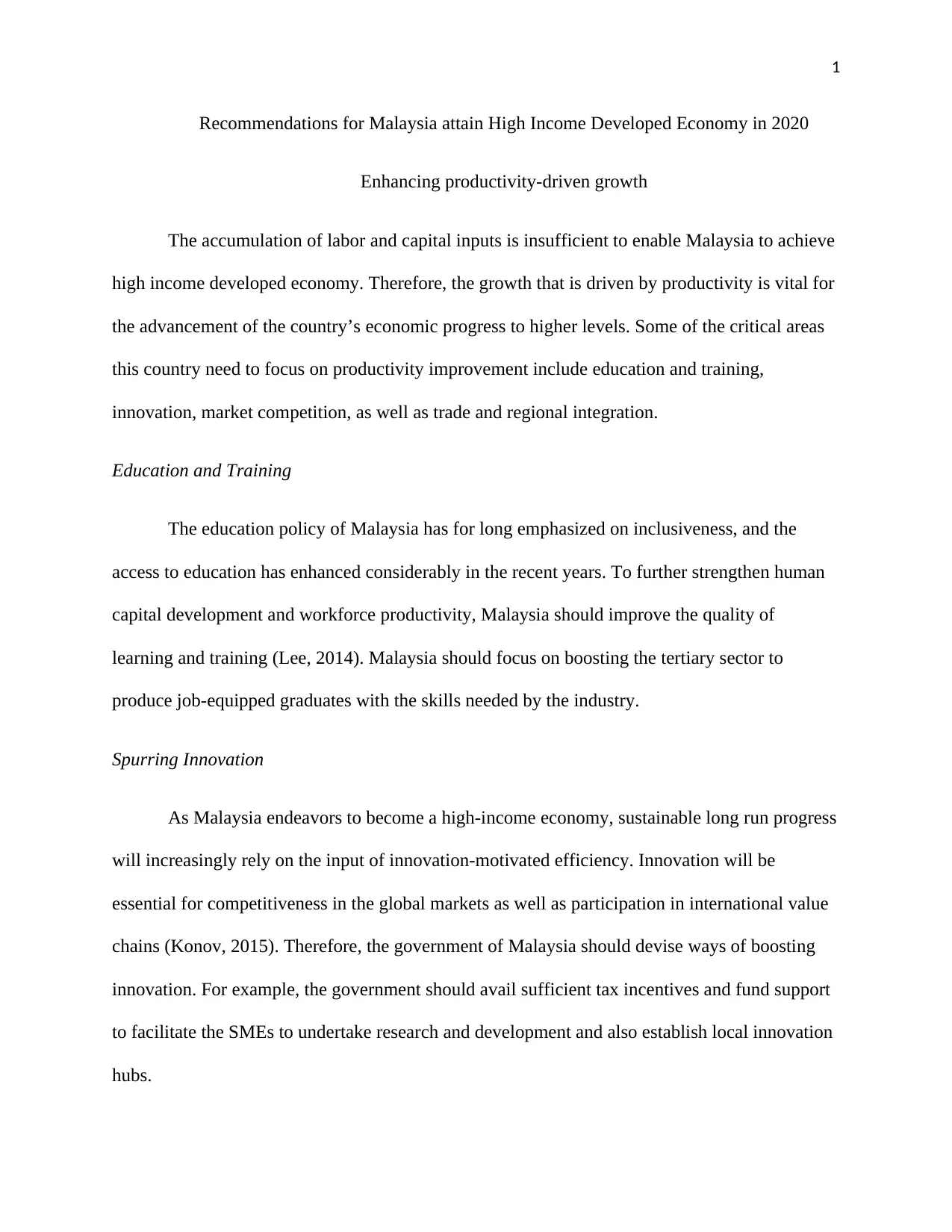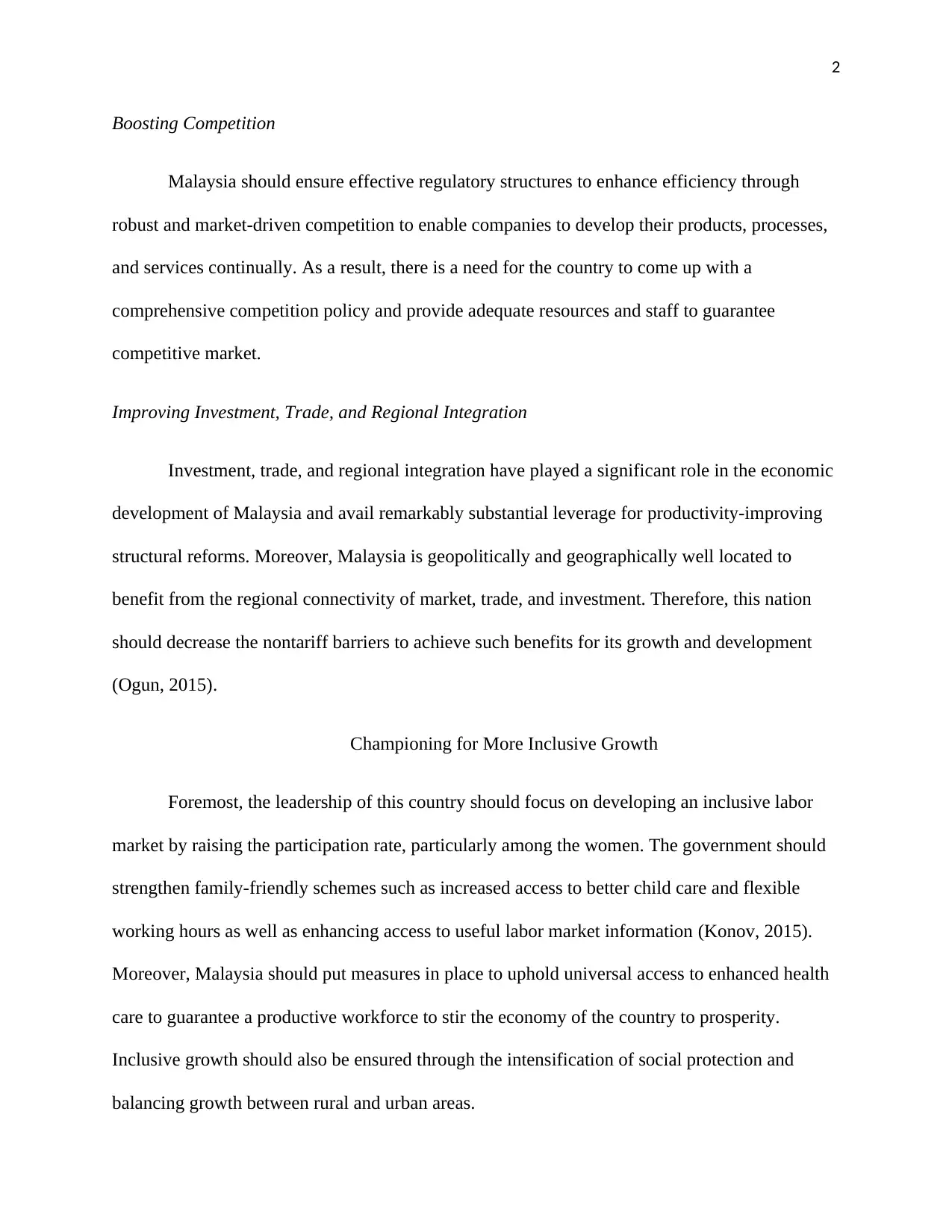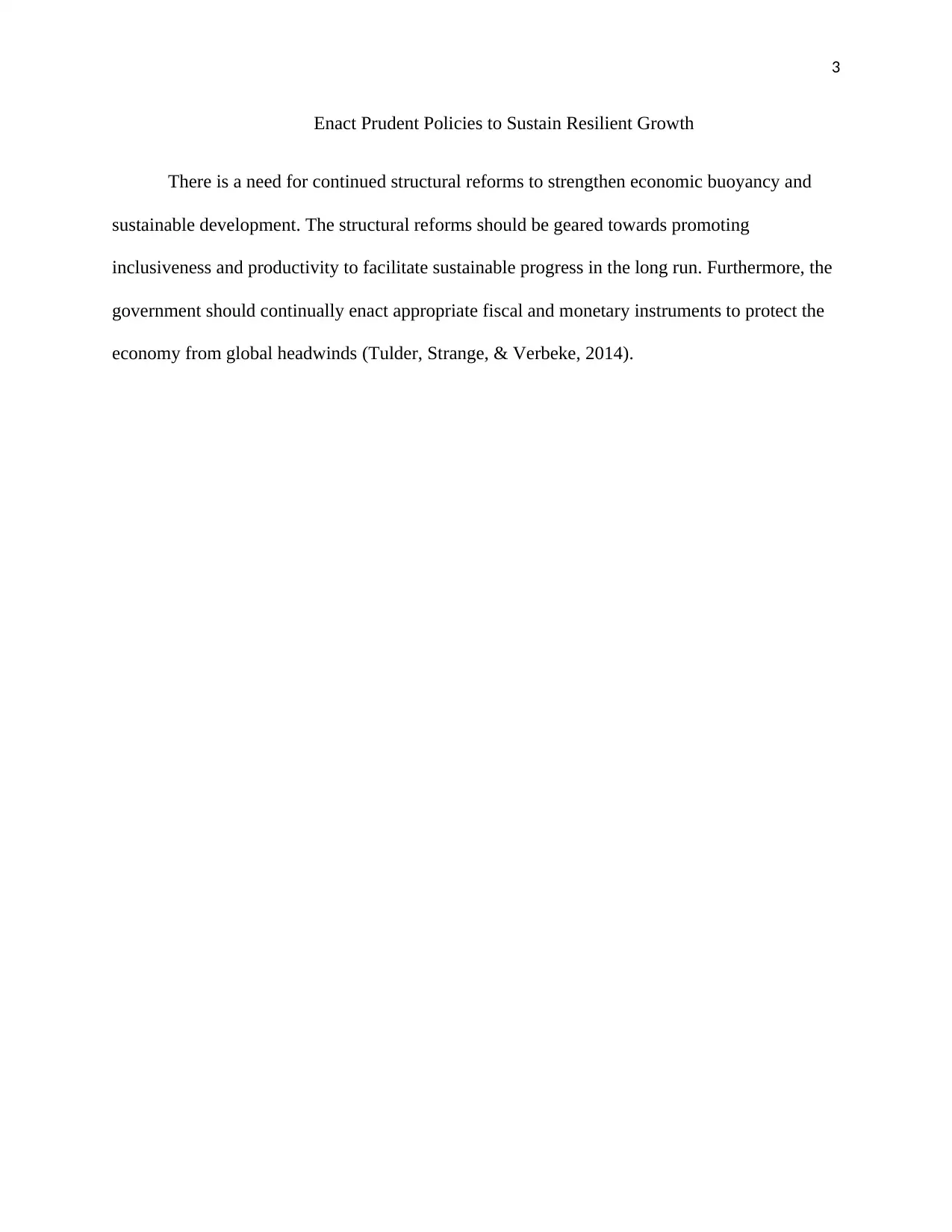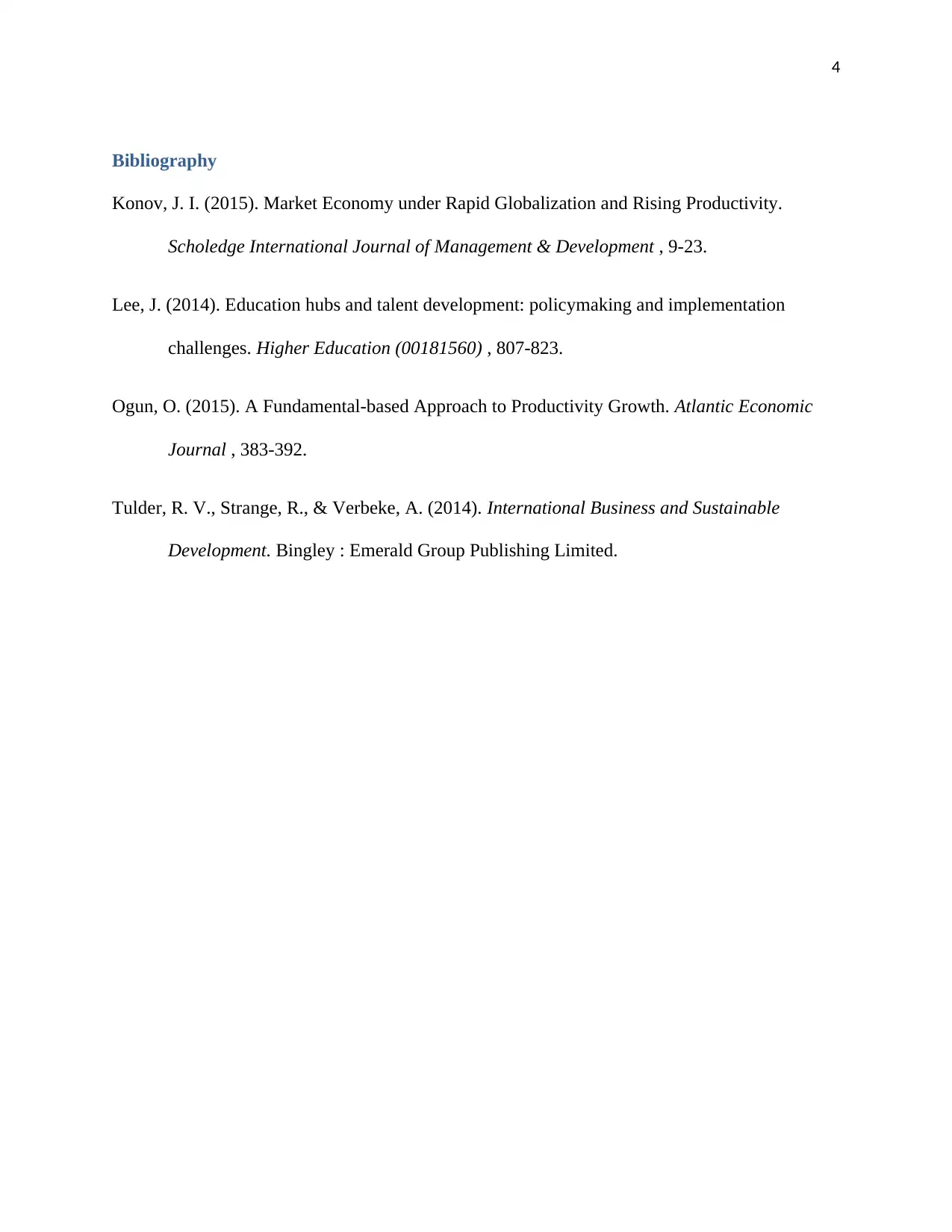Enhancing Productivity-Driven Growth: Malaysia's High Income Goal
VerifiedAdded on 2020/03/04
|4
|694
|35
Report
AI Summary
This report provides four key recommendations for Malaysia to achieve a high-income developed economy by 2020. It emphasizes the importance of productivity-driven growth, highlighting critical areas such as education and training, innovation, market competition, and trade and regional integration. The report suggests improving education quality and boosting the tertiary sector to equip graduates with industry-relevant skills. It also advocates for government support for innovation through tax incentives and research and development funding. Enhancing market competition through effective regulatory structures is also emphasized. Furthermore, the report stresses the significance of investment, trade, and regional integration. The report also champions inclusive growth through labor market participation, family-friendly schemes, access to healthcare, and social protection. Finally, the report calls for prudent policies and structural reforms to ensure economic resilience and sustainable development. The report concludes with a bibliography of relevant sources.
1 out of 4











![[object Object]](/_next/static/media/star-bottom.7253800d.svg)